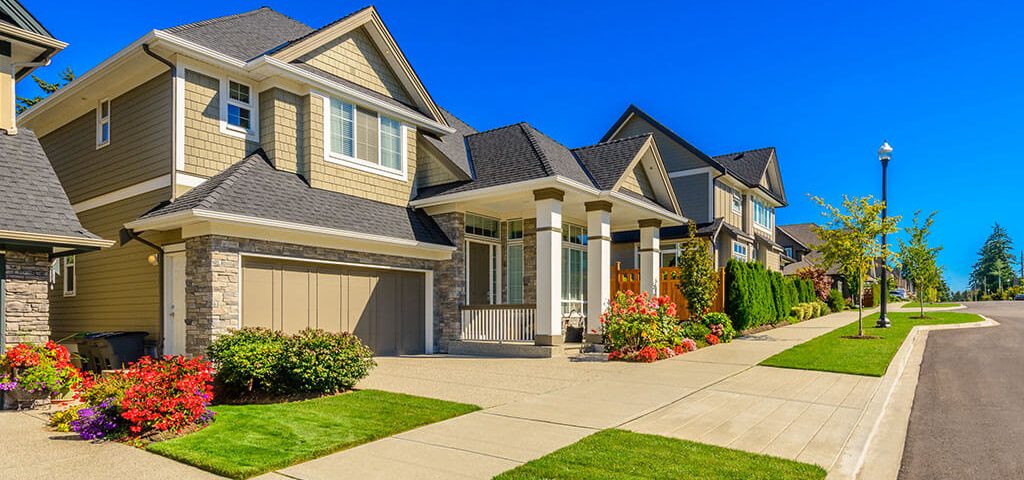There are standard questions that we ask of potential customers seeking to purchase a home insurance policy. We created this explanation of terms and aspects of your residence that will help us prepare a better insurance quote. We can get rates from multiple carriers to ensure that you get cheap insurance (according to your budgetary needs).
Here are the basic elements that a prospective insurer will need to know about your home:
Type of Home
Do you live in a home, a condominium, a duplex, a townhome, a mobile home, or a multi-family residential unit?
Year Built
The age of your home may make the premiums more if it is older and the cost of construction will be high. Newer homes are built to stricter codes, but they will also have replacement costs based on the market.
Construction Type
Some homes are made out of mostly wood, mostly brick, or stucco.
Square Footage
The larger your home is (i.e. 1,300 square feet vs. 3,000 square feet), the more construction costs will be involved in replacing it if it is a total loss. There may be a difference between the square footage that is under air conditioning and the square footage that is not under air conditioning.
Primary Heating
This is the way that your home is kept warm. Examples are gas, electric, hot water radiator, oil/coal/kerosene, stove, or propane. Each kind of heating source has its own risk factors (i.e. for fire, smoke, or explosions that could occur by accident or because of sabotage).
Foundation Type
Your home may be built on a fully, half-finished, or unfinished basement, over a crawl space, or on a concrete slab.
Roof Type
Your roof may be made of asphalt shingle, tile, metal, or concrete. Some roofs will be more subject to damage based on weather patterns such as heavy thunderstorms, blizzards, hurricanes, or tornadoes. It also depends on whether you are located close to a beach or located inland.
Roof Age
The age of your roof will help the insurer to estimate how long it will be until a new one is needed.
Garage Type
Some garages are attached to the home, and some are detached. Each garage can accommodate a specific number of cars. A car port is also a type of protection for your vehicles that could be listed here.
Fire Alarm Type
You may have manual smoke detectors inside the home, but some homes will have monitored or unmonitored alarm systems and even fire sprinklers that exceed the minimums required by law.
Home Security System.
You may have equipment that discourages burglaries and vandalism. This can include a monitoring system and an alarm, and this system may be monitored or unmonitored (just like fire alarms).
Type of Pet (Dog or Cat)
Some homeowner’s policies will either cover or exclude the dog bite event. A person may sue your residential policy because your dog bites him or her. Dog breeds might include Chow, Doberman, Rottweiler, Wolf Hybrid, German Shepherd, Pit Bull, or some mix of these breeds.
Approximate Replacement Cost of Dwelling
While you might have purchased the home for $100,000, its fair market value might be $300,000. You want to insure your home for what you think it would cost to replace it. Ask for a replacement cost as near to the value estimated by the local property appraiser as possible, if not more.
Previous Claims or Loss History
The insurer will want to know about any claims you have made on a previous policy within the last five years. These may or may not have been to disasters such as weather or fire or because your home was vandalized.
Personal Liability Insurance Amount Desired
This is the amount of insurance that you want to have applied to you and your family in case you are sued by another party. These are for types of claims that aren't related to the dwelling, the dog, etc.
Existing Policy
The insurer will want to know if you have a current policy in place that will be replaced or if the prior policy had lapsed.
Deductible Desired
This is the amount that you are willing to pay before your carrier starts paying out on a claim. This includes events where you are trying to make a claim for repair or replacement of your property.
Other Features
These are other aspects of the home that may affect your premium. Think about whether you have a pool, a trampoline, a covered deck or patio, dead bolts, fire extinguishers, and/or exotic pets. Your property may also have outbuildings or additional dwellings that you want to include or exclude on the homeowner’s policy
Credit Rating
How is your credit rating? You can look up your free credit score online. It could be excellent, good, fair, or poor.
Flood Insurance
Use the "Other" box to inquire if the home will be covered against flood damage. Most homeowners’ policies do not include this coverage even when it is required by their mortgage lender based on where they live.
Personal Contents
Ask the insurer about the total dollar limit of benefits that will be available to replace the contents of your home. You can ask for greater or lesser benefits than your agent would normally add to a home that's the same size as your dwelling. Contents include furniture, electronics, clothing, appliances, artwork, jewelry/valuables, and so on. If you keep a lot of expensive items in the home, you may need to prepare documentation on each item's value. This will help you make a claim to recover the value of lost or damaged items in the event of a burglary or a total loss.
At StarNet Insurance Group, we're here to help you navigate the complexities of insurance. Please feel free to contact us with any questions you may have.




